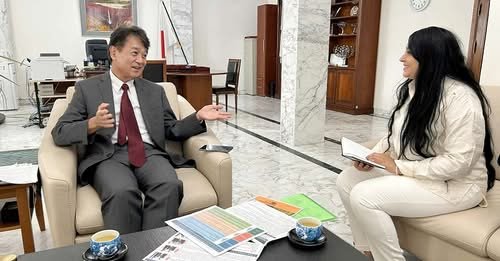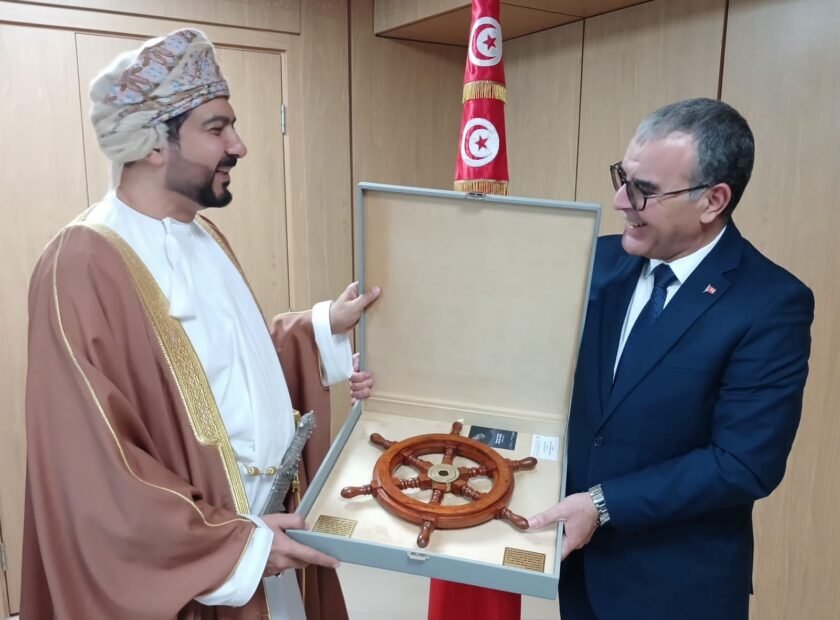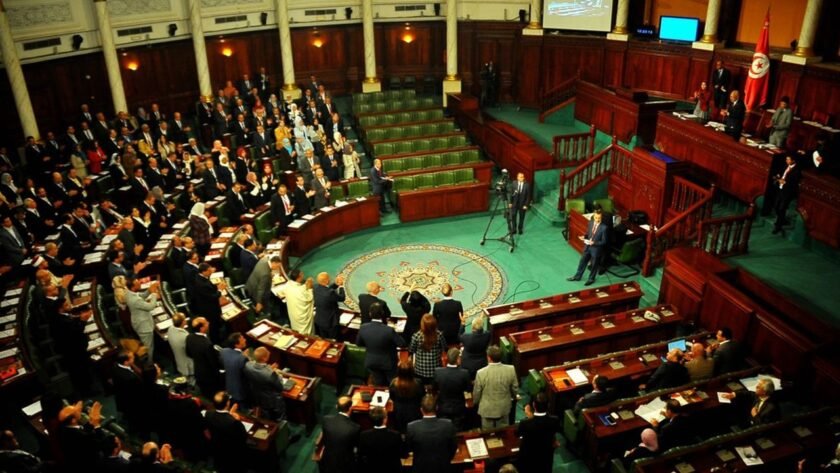Photo Credit assabahnews
Tunisia can serve as a strategic gateway to Africa
Vast opportunities exist in medicine and pharmaceuticals
Japan is keen to expand its economic presence in Tunisia
Amid aspirations for growth and innovation, Tunisian–Japanese relations have carved out a special place on the map of international cooperation. From the landmark TICAD 8 summit held in Tunis to emerging projects in renewable energy, Japan’s Ambassador to Tunisia, Takeshi Osuga, affirms that Tunisia is not merely a partner but a strategic entry point for Japanese companies into African markets. This vision is backed by strong political will on both sides to broaden areas of collaboration.
In this forward-looking conversation with Assabah, Ambassador Osuga expressed Japan’s determination to deepen cooperation in promising fields such as renewable energy and higher education.
How do you assess the current level of diplomatic relations between Tunisia and Japan? And in which sectors do you see the greatest potential for stronger bilateral cooperation?
Hosting TICAD 8 in Tunis marked a turning point in the evolution of our diplomatic relations. Despite the challenges posed by the COVID-19 pandemic at the time, the summit was a major success, injecting fresh momentum into our partnership. Tunisia became the second African nation, after Kenya, to host TICAD—a milestone that gave our ties symbolic significance.
Tunisia enjoys several advantages that make it a strategic partner:
Geographically: its location at the heart of North Africa and its proximity to Europe.
Economically: its strong ties with the European Union through the Association Agreement, and its early membership in the African Continental Free Trade Area (AfCFTA).
Human capital: highly skilled professionals and an expanding renewable energy sector.
With these strengths, we see promising opportunities in healthcare, pharmaceuticals, digital transformation, renewable energy, tourism, and culture. Remarkably, Tunisia has more medical schools per capita than Japan itself, which opens vast prospects for cooperation in medicine and pharmaceuticals.
How do you view Tunisia’s role as a bridge between Japan and the rest of Africa?
Tunisia has a vital role in regional stability thanks to its strategic geographic location and its privileged ties with Mediterranean and European countries. As Prime Minister Kishida emphasized in his recent meeting with Tunisia’s Head of Government, Japan attaches great importance to its relationship with Tunisia.
Given today’s global challenges—economic crises, climate change, and geopolitical shifts—how does Japan envision its partnership with Africa, and with Tunisia in particular?
Tunisia holds significant geopolitical weight. Its prosperity and stability are crucial not only for North Africa but also for the Middle East and the wider Mediterranean region, including Southern Europe. This is why cooperation with Tunisia is of utmost importance.
Tunisia also shares with Japan a commitment to universal principles such as the rule of law and respect for international law, as enshrined in the UN Charter.
What about higher education and research? Could we see joint projects between Tunisian and Japanese universities?
Yes, absolutely. Through JICA and embassy programs, we already offer scholarships and training for Tunisian students and researchers in Japan. We are also working to expand institutional partnerships in technology, engineering, and medical sciences, which will enhance academic exchanges and build new bridges between the younger generations of both nations.
Japan is known for its commitment to sustainable development. Are there projects in Tunisia in this regard?
Indeed. Japan is actively engaged in renewable energy, particularly solar power. We have funded Japanese companies investing in Tunisia, with projects underway in Sidi Bouzid and Tozeur, and more in the pipeline for Japanese financing.
How do you evaluate the outcomes of TICAD 9?
TICAD 9 was a major success, gathering all African nations with 33 represented at the highest level by heads of state or government, alongside the UN Secretary-General and AU leaders. The summit adopted the “Yokohama Declaration” by consensus, which sets priorities for future cooperation. On the bilateral level, Japan’s Prime Minister held meetings with over 30 African leaders, including Tunisia’s Head of Government.
Unlike earlier editions focused on aid, TICAD 9 emphasized investment and co-creation, reflecting a shift toward shared solutions for Africa’s challenges.
How can Tunisia practically benefit from TICAD 9’s outcomes?
It is up to Tunisia to leverage these commitments. For instance, at TICAD 8, Japan pledged $30 million in public and private investment over three years—a commitment fulfilled by July 2025. With TICAD 9, the new Yokohama Declaration provides further opportunities, and Tunisia can seek to secure its share of these projects.
How many Japanese companies currently operate in Tunisia? Is there potential for more?
Currently, there are about 29 Japanese firms active in Tunisia—mainly in automotive cable manufacturing and textiles. While this number is modest compared to European partners, there is government-level interest in expanding Japanese presence. We believe healthcare, renewable energy, and digitalization will open new horizons.
Beyond solar energy, are there other areas of cooperation?
Yes. Waste management is one such area, where we provide equipment and work with local municipalities and NGOs. We are also piloting biogas power generation in Sousse, with further projects in Djerba and Beja.
Is Japan planning to boost investment further?
Yes. Two important MoUs were signed at TICAD 9: one with the Pasteur Institute to develop vaccines using CHO cells without animal testing, and another with a Japanese investment fund to expand home healthcare services for the elderly and disabled.
Could Tunisia become a regional hub for Japanese companies in Africa?
Currently, most Japanese companies in Tunisia export to Europe. But with AfCFTA coming into force, Tunisia could indeed serve as a regional hub for accessing African markets in the future.
Finally, how do you assess Japanese tourism in Tunisia?
Numbers remain modest. While 9,000 Japanese tourists visited Tunisia in 2023, the figure is still below pre-COVID levels. However, the mutual 90-day visa exemption—one of only three such arrangements Japan has in Africa—is a strong incentive for growth. Expanding partnerships between Tunisian and Japanese travel agencies will be key to boosting tourism flows in the future.
TunisianMonitorOnline (Douha Essafi)




